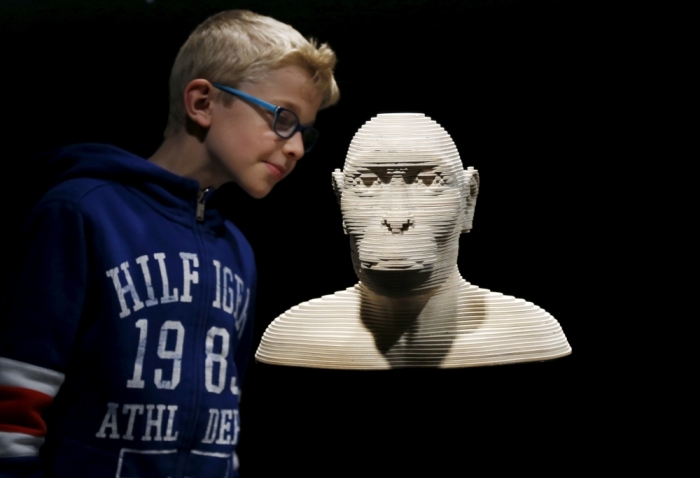Did Human Morality or Knowledge of God Come First? Ken Ham Offers Answers in Genesis' Response

Creationist Ken Ham's Answers in Genesis organization has offered an answer to the question of whether human morality or knowledge of God came first, looking at the debate through the lens of Scripture.
"The origin of morality and a knowledge of God is a puzzle for evolutionists to explain. But, since we have a different starting point, believers can have sure answers to this question," Ham wrote on Facebook on Wednesday, and linked to an article written by AiG editor Frost Smith.
The article offered that if humans evolved, then the belief in God, as well as morality and altruism, must have also evolved – but said that idea is "wholly unsatisfactory."
"Delving into the many hypotheses to give a naturalistic explanation for our distinctly human sense of something greater than ourselves (to sum it up as succinctly as possible), we are presented with a few basic ideas once distilled," Smith writes, and listed out several secular explanations for morality, such as altruism and empathy observed in some animals.
He argued, however, that explaining how empathy developed is a Catch-22.
"Secularists thinking in terms of natural selection would argue that selfishness is a benefit to fitness. A purview in evolutionist literature on the development of morality shows that most now reject the notion that our behavior is just a product of our brain chemistry, but that the growth of our community sense, as described above, combined with the still-important chemistry and brain size is the explanation," Smith described.
He argued, however, that man's sense of the supernatural and morality, along with religion, suggest there is something special about humankind, which evolutionists struggle to explain.
"The fact that atheists have a moral code (sometimes, sadly, more than some that claim to be Christians!) is an ironic testament to the image of the God that they deny," he added.
"Why would there be any need to be altruistic or even generous if other humans had no more value than other animals competing for resources? Even if it were for 'feel-good' chemicals, why should it feel good?"
The article insisted that God, as presented in the Bible, is a "consistent, relational, and singular cooperative entity of three persons," and that His Word is "the basis for all moral codes—whether people realize it or not."
"Mankind's continued attempts to deny the God of the Bible—the very source for the basis of what we call morality and humanity—have been unsatisfactory even to those who deny Him, as evidenced by lack of consensus and fully satisfying explanations of what is a complex issue in their eyes," Frost continued.
"Even the floundering sense of vague religiousness so apparent in the news and social media attests to man's attempts but inability to fully deny God as He has revealed Himself in His Word."
He next focused on the creation account in Genesis, where God created Adam and Eve, later walked with Noah, and revealed himself to Abraham, and then again to Moses, and through Jesus Christ.
"God never left us without a witness or direction. God and the one true religious worship of Him are no mystery. We need no hypotheses to determine how man came to be conscious of himself and others, when we began to acknowledge God, or when we began to practice worship," the article concluded.
Although there are a variety of different beliefs regarding Genesis among Christians, such as the Roman Catholic Church embracing theistic evolution, Ham has argued in the past that a literal interpretation is very important.
"Genesis 1-11 is like the foundation to a house. The whole structure stands upon it — all of our major doctrines like sin, salvation, the coming consummation, marriage, and more are grounded in Genesis," Ham wrote back in March.
"Sadly many Christian leaders say Genesis isn't literal history and in doing so they undermine the foundation. No wonder such a large percent of church millennials don't defend marriage as for one man and woman. They no longer have a foundation to base their thinking on," he added.





























